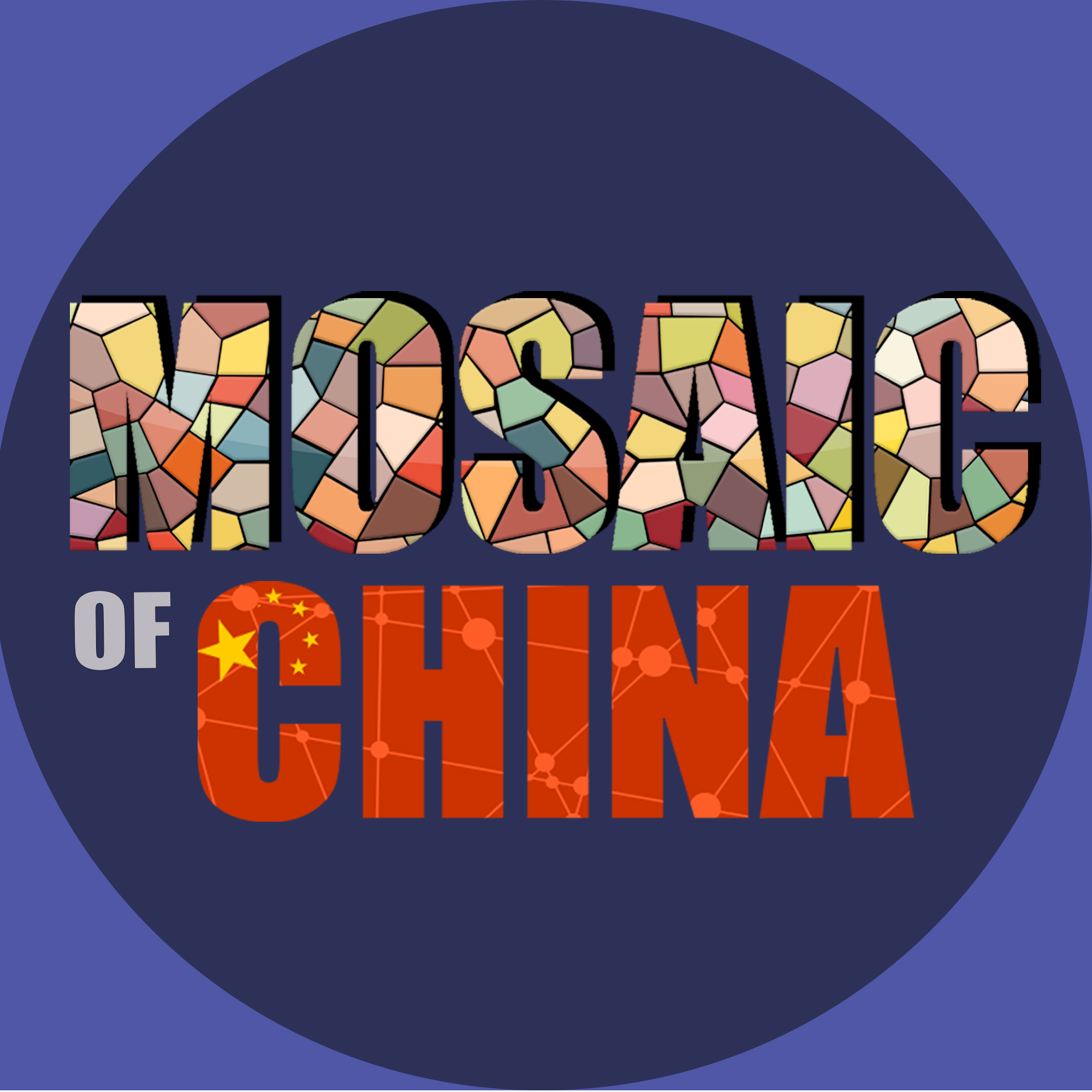Season 01 Episode 10
Episode 10: The Luxury Manager
Lori LI - General Manager, Yongfoo Elite
Original Date of Release: 15 Oct 2019.
“Keep it Quiet” is the name of the semi-public bar at Yongfoo Elite, the private members club located in the diplomatic quarter of Shanghai. So I’m especially grateful that its General Manager, Lori Li, broke her own rules to speak to me in this week’s episode.
As well as spilling the beans on the club itself, Lori and I talk about Shanghai’s status as a world centre of style and fashion, and she walks us through the changing interpretation of what luxury means in China. You may think you know how Chinese people view luxury, but like everything in China, these trends have a habit of changing very quickly. So I hope that this interview helps to keep you updated on the latest interpretation.
You can also listen to a catch-up with Lori at the end of the interview with Salome CHEN from Season 02 Episode 24.
To Join the Conversation and Follow The Graphics…
View the Facebook Album for this episode. Alternatively, follow Mosaic of China on WeChat.
To view the images below on a mobile device, rotate to landscape orientation to see the full image descriptions.








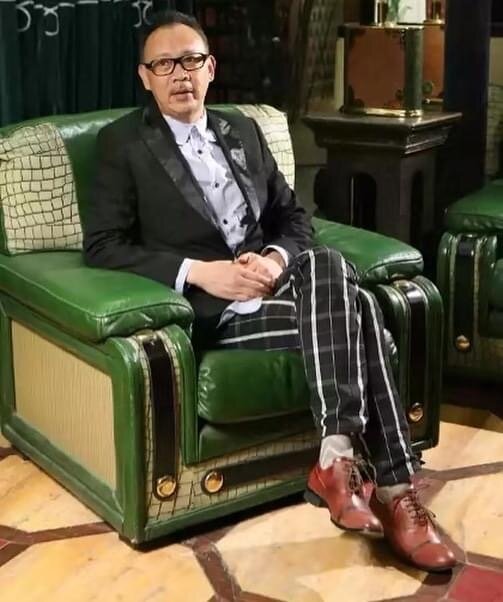
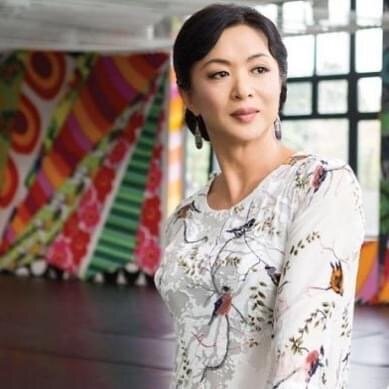
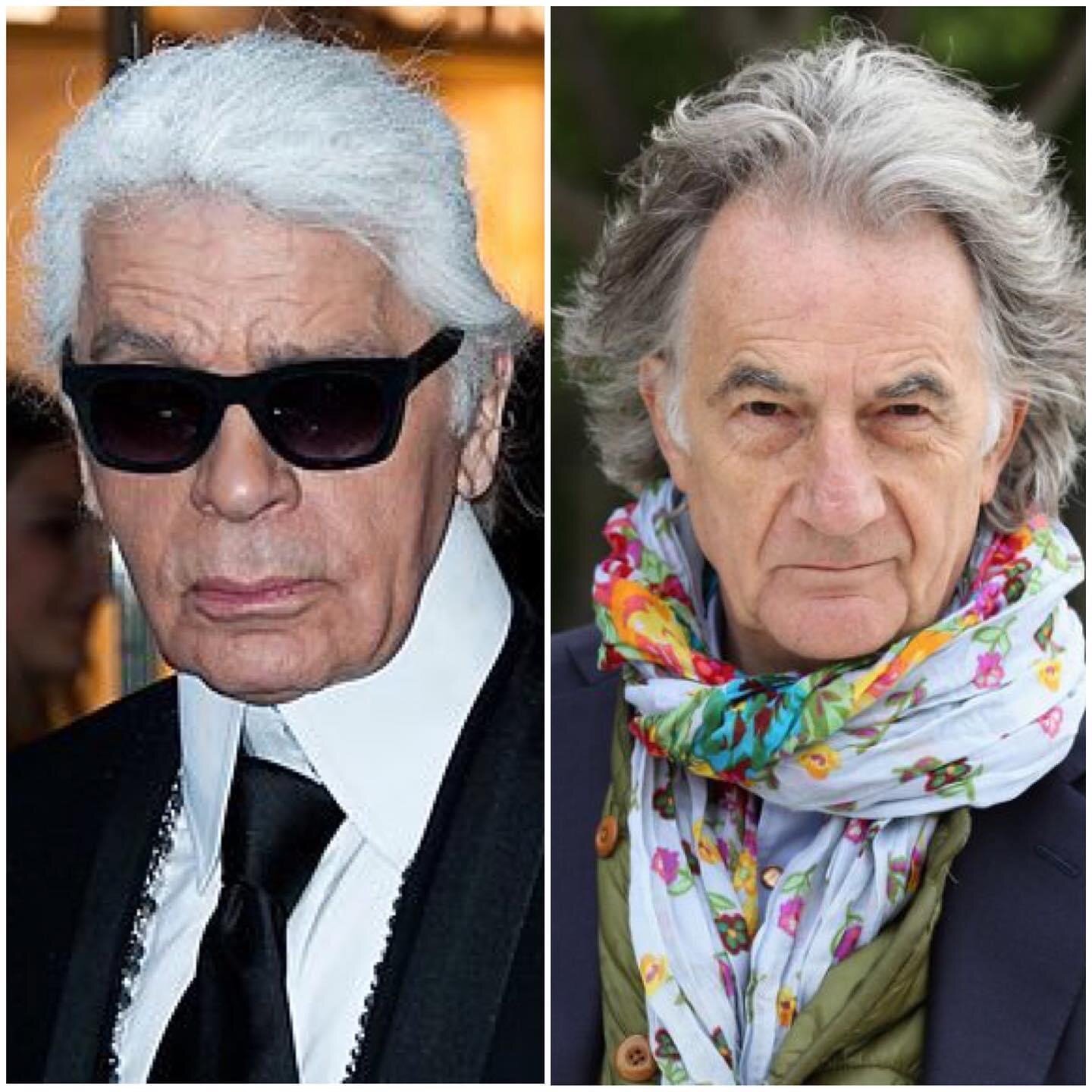

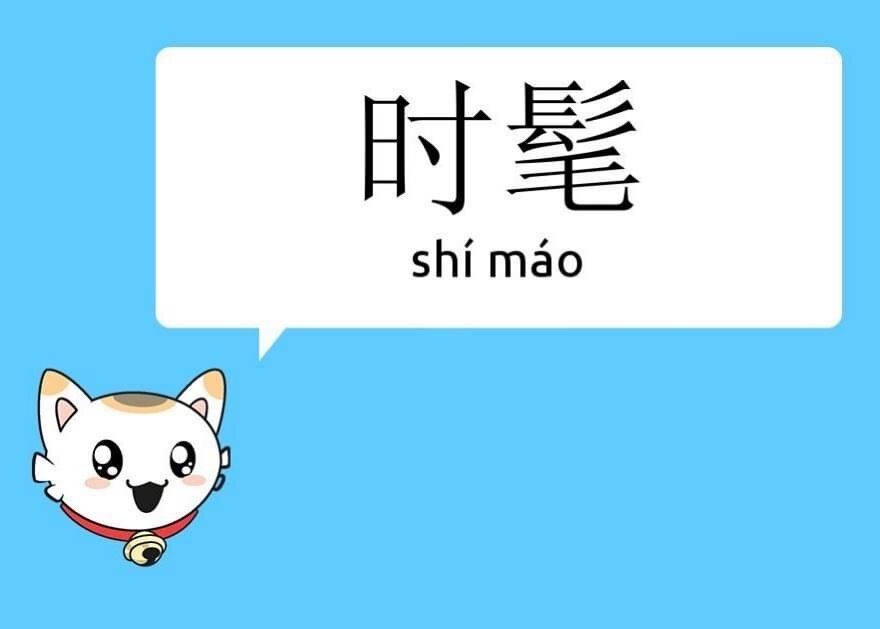




To Listen Here…
Click the ▷ button below:
To Listen/Subscribe Elsewhere…
1) Click the link to this episode on one of these well-known platforms:
2) Or on one of these China-based platforms:
To Read The Transcript…
[Trailer]
LL: Yeah, there is a panda. He destroyed everything in the office.
OF: Oh, I love this one.
[Intro]
OF: Welcome to Mosaic of China, a podcast about people who are making their mark in China. I'm your host, Oscar Fuchs.
So we've reached Episode 10 today. Double figures deserves a celebration, and I've decided that this means taking a very short break. It's not the end of the Season by any means, I'll be back with the next batch of Episodes 11-20 before you know it. But I just wanted to avoid information overload for those of you who are listening to this in real time, and to allow those who aren’t to have a chance to catch up.
This week's episode is with Lori Li. As you'll hear us mention at the very start of our conversation, Lori is the General Manager of YongFoo Elite, which is a private member's club here in Shanghai. But more than that, it houses a Michelin 2-star restaurant, it has been voted the best music venue in Shanghai by Time Out, and it's something of a secret calling-card of Shanghai. I mention ‘secret’ because it's still a place that's shrouded in a little mystery. They don’t splash a lot of things about it online. I lived around the corner from it for about 18 months before I even heard about it. And in fact, the name of their semi-public bar is ‘Keep It Quiet'. So I'm very grateful to Lori for breaking her own rules in this interview.
This means it's another good excuse for you to check out the photos that accompany the podcast on social media. In this episode, you'll see the antique wine glass that Lori brought to the interview; you'll see photos of the club, which Lori and her team kindly shared with me; and many other images that are also relevant to our conversation. You can find us on Instagram at @oscology* and Facebook at @mosaicofchina. And for WeChat, please add me on ID: mosaicofchina,* and I'll add you to the group.
As well as spilling the beans on the club itself, Lori and I talk about Shanghai’s status as one of the world's centres of style and passion. And she walks us through the changing interpretation of what luxury means in China, particularly over the last 20 years. You may think you have an idea about how Chinese people view luxury, but like everything else in China, these trends have a habit of changing over a few years what might take an entire generation elsewhere. So I hope that this interview helps to keep you updated on the latest interpretation. And a final quick heads up, you'll notice immediately that there were sound issues in the studio when we did this recording. Very sorry about that, I hope you'll still enjoying what Lori had to say.
*Different WeChat and Instagram handles were mentioned in the original recording. These IDs are now obsolete, and the updated details have been substituted.
[Part 1]
OF: I'm here with Lori Li, and Lori you are the General Manager of YongFoo Elite, which is a private club here in Shanghai.
LL: Yes.
OF: Well, I want to go into your experiences there. But before we do, the first question I'd like to ask is, what is the object that you have brought today?
LL: That is an ancient wine glass from China. It's from more than 1,000 years ago. Before, in ancient China, wine and food were related to ceremony. So dinner is related to communication with god. All food ceremony is related to communication. For communication to God, there are many parts. you know, it's very - how to say - prestigious. And you, can from the shape, feel this. Because it's very tall. So it's full of the feeling of how you respect god. In ancient China, God is nature.
OF: And tell me, what is it made of? And which part of China does it come from? Do you know the details?
LL: That is a 汉 [Hàn] Dynasty wine glass. The colour is black, and there are eight goddesses crafted into this ceramic. So why it's black and white is that these are very special colours in that time. Because at that time, white and black are very serious colours. Not everyone can use them. So this glass was only for special ceremonies to god. Only in the temple - to make some very important statement - can you use white and black. So the colours make you feel very gorgeous.
OF: And what does this symbolise for you, in terms of what you're doing now in China?
LL: Oh, because I’m in the hospitality and F&B industry. So I want to introduce much more culture, lifestyle behind that. So I want to introduce Chinese traditional food culture and lifestyle to international people and to modern society. Introducing the core value of that.
OF: Well, let's go straight into that, then. So why don't you tell us about what the club actually is?
LL: Ah, OK. Our club was built in the 1930s. It's used to be a private doctor's home, and after 1949 this house is belonged to the government, and it became different countries’ consulates. And the last consulates was as the British consulate during the 1980s, until 2001. And then after that, we took over the place and were renovating for three years. And so the YongFoo club, we opened in 2004, as a private membership club.
OF: And what were the challenges of renovating a building like that?
LL: It's a very old building, at that time. And the house actually had collapsed a little bit. So that's why the British consulate didn’t want to pay money to renovate it, and they moved out. So the house actually had very big problems. So we used stainless steel to make the structure again. So we almost rebuilt the whole house, but using older materials to make it still look old. But actually, everything is a new building.
OF: Wow and three years, it's such a long time. Like, what was it that took so long?
LL: Because the owner and designer of YongFoo Elite, Mr. Wang, is a very artistic designer. So he wanted to achieve his own life’s dream in this project. He used to be a very good fashion designer in the 1980s. He’s of the first generation of fashion designers in China. So he was famous for combining East and West - all the design and cultural elements - into his projects. So he put all his life experience and energy into this project, and failed thousands of times, and wasted a lot of investments. So that's why the project lasted three years.
OF: And when did you personally get involved?
LL: I met Mr. Wang in 2005, and joined the company in the same year, I used to be a journalist, and I wrote articles about culture. And I was a columnist also, writing about lifestyle, book reviews, movies, theatre, all kinds of things. And then I had an interview with 金星 [Jīn Xīng], who is a contemporary dancer. So 金星 [Jīn Xīng] introduced me to Mr. Wang three days after our interview. So that was a very very accidential meeting for us.
OF: Great. And yeah, 金星 [Jīn Xīng] is a very famous personality, I've heard a lot about her.
LL: Oh, yeah, I think she's a legend.
OF: Yes. So, you mentioned that you had a lot of different artistic pursuits, you were a writer, you were a columnist. Is that what drew you to this kind of creative project?
LL: I think beauty, in some way, is related to all kinds of fields, no matter whether it is literature, poetry, or design, or art. So I just think YongFoo Elite is a lifestyle that presents beauty. So that's why I indulge in it so much, as I think i can explore many more versions of beauty, and how to represent it to more people.
OF: Right, because what I know about the club, is that it is very much about the creative side. it's not so much about, you have to have this much money, you have to be a businessman. I sense the focus on bringing creative people together.
LL: You know, we could have done a closed membership club in 2004. At that time, we had two choices. One was to be totally closed, only for members, for those very business elite people to pay a high membership fee; and the other choice was to be open to more people. And then at that time, we made the decision to make it open to more people. The reason is, Mr. Wang wanted to share his art pieces to more people. So that's why we - in 2004, when we opened - we decided half would be membership, half would be open to the public. It's almost like a private museum. It includes thousands of antiques in the collection, with fashion language elements to represent them. And we want to show people a different spiritual statement. So we gather many underground musicians - and also video artists, sound artists, and dancers, all kinds of contemporary art forms - to mix together, to present a different experience. So many singers, musicians. So this kind of crossover between public and private - and the interaction between performers and audience - is very intimate. I think that's a very unique experience. I think it's all about Shanghai, because many people say that YongFoo Elite is a kind of name-card of Shanghai. It's related to Shanghai city culture. I think Shanghai is a city which combines old and new, East and West. In Shanghai, we have a very interesting word it's called 时髦 [shímáo]. 时髦 [Shímáo] is not ‘fashion’; it’s not ‘style’, it's a word between fashion and style. So ‘style’ is, you know, much more like ‘classic.’ Or you can say style is much more stable, fixed. And fashion always changes, it’s always, you know, very flexible. But 时髦 [shímáo] actually is the core spirit - or one of the core spirits - of Shanghai city culture.
OF: And is that your definition of ‘élite' because of course, your title is YongFoo Elite. And to me when I think of what the élite want, you think of 100 bottles of champagne, you have the best buildings, you have the most expensive cars… But it's something more, right?
LL: Of course. if élite was only related to money, for us it's not enough. For us, the business élite and intellectual élite should be combined together to become one. So for us, élite means that you are always involved with this city, you are always ‘in’. So that's not related to your physical statement, it’s much more related to your spiritual statement.
OF: So what has changed then? When when you talk about 时髦 [shímáo], when you talk about the tastes, when you talk about the intellectuals of Shanghai, how have things changed in the last 15 years?
LL: In the first period during 2000-2010, it was much more about how you show off what you have. So it was about watches, wine, cigars, fashion. Chinese people wanted to learn a lot about taste, so they can present it in some way. So as that time, being trendy was like that, all the physical things. And after 2008 - the year of the Olympic Games in Beijing - and 2010 - the Expo in Shanghai - I think more people realised that they want to find something from the inside, and not rely on the physical part. So at that time the Chinese new élites became more focused on philosophy, history… So at that time, our club also had a lot of programmes about, like, how to make tea ceremony, how to make incense ceremony; or the philosophy programme, how to teach the new élites to find themselves, from the inside. And then after I think 2015, the third generation came. And they are younger, they are born after 1985. And they are more liking individual experiences. They're more focused on creative content, like music, contemporary art, and - how to say - independent travel. So I think this gives evidence about the three different generations, how their needs changed, and also how society’s values changed.
OF: That's fascinating. And I'm sure it's probably similar to anywhere else, where you've had different definitions of what luxury means.
LL: Yes. Now luxury’s identify is much more back to nature. Like family, and close friends, and intimate moments. I think luxury has changed a lot in China.
OF: You mentioned that you've had these changes, the three phases. When you look back over your last 15 years, which which has been the hardest phase? Have you had a really challenging period?
LL: In 2007 there was a financial crisis which influenced everywhere internationally, Asia and Hong Kong. And 70% of customers, they just vanished in 2007. Yeah. At that time our GM, who was a very brave lady, lead our marketing people to go to local companies, one by one. So like, big companies like 华为 [Huáwèi], 联通 [Liántōng], 宝钢 [Bǎogāng], all these Chinese companies, after the meeting, became our new customers. So for one year we struggled in this financial crisis. And after one year, 70% of our customers were Chinese people.
OF: Interesting. And how does that compare with today?
LL: Now we still, like, 60-70% Chinese people. But they became much younger. Half of our customers were born in the 1980s, 20% of them were born after 1990.
OF: And to change direction completely, who have been the interesting guests that have come to the club? I know you can't tell me all their secrets. But do you remember a few special guests who have come to the club?
LL: Yeah, we had a very special guest, which was Karl Lagerfeld. Yeah, when he was the Director of Chanel, he brought 200 guests from all over the world to have a sit-down dinner at our club. That was a gorgeous dinner. And what I remember is, after all the other guests left, Karl wandered around in our garden alone at 1am. And he liked talking to himself, or talking to nature. That was a very magic moment in my memory. One of my icons is Paul Smith. And I like his designs and spirit so much. And he arrived at seven o'clock to having traditional Shanghai cuisine and dim sum. Then we wandered through the garden, and saw the Peking Opera, which also I prepared for him. So I think that's also a very unique moment for the garden and the guest.
OF: Well, I'm sure you have many stories, but I won't get you to record them today. You can tell me after. Well, thanks again and let's move on to the second part.
LL: OK.
[Part 2]
OF: So, question number 1, what is your favourite China-related fact?
LL: I like the stone inscriptions at tourist sites. Because it's a very unique sight, seen only in China. You can see so many stones, and they have some words or some drawings on the stone. And it's like, in every dynasty, the people saw the same view - same mountain, same lake - but they have different feelings. So all of them, they put their feelings on the wall, on the stone. So generation by generation, you can tell the different people's feelings. Because it’s the same view, but all the people have their individual opinion of that.
OF: Do you have a favourite word or phrase in Chinese?
LL: Oh, as I mentioned, I like 时髦 [shímáo]. 时髦 [Shímáo], actually the word comes from the 汉 [Hàn] Dynasty. Yeah, the meaning is between style and fashion. One meaning is, it’s all about outstanding people. In the 汉 [Hàn] Dynasty, the original meaning is ‘outstanding people’. The next meaning is about the people who are ‘in’ in society. So I like this word, because it's really a city feeling like Shanghai.
OF: And what's your favourite destination within China?
LL: I like the small cities, small towns, we call them 五线城市 [wǔxiàn chéngshì]. So when you go to a very far place, or like a small town, you feel it's so interesting, crazy, and people have their own local culture.
OF: And it's funny because the cities are becoming more generic, but it's in the small towns outside the cities that you feel the real different flavour, right?
LL: Yeah, it's all about adventure, and different culture.
OF: And if I was to press you, and for you to choose just one, is there's one that jumps to mind, that's your favourite?
LL: My latest visit was to a small town besides a lake in 广西 [Guǎngxī]. And the people, they don't speak Mandarin, they speak their local language which I can't understand. But they have beautiful a lake, beautiful trees. And I communicated with them, not using language. We communicated in other ways.
OF: If you left China, what would you miss the most, and what would you miss the least?
LL: I would miss Chinese food, and the atmosphere when you have Chinese food. It’s all about, you know, friends gathering and everything mixed up. And yeah, I have a Chinese stomach.
OF: It's not actually so much about the food. It's about the whole ritual around the food.
LL: Yes.
OF: And if anything, what would you miss the least?
LL: When I was in the U.S. or Europe, I don't miss takeaway food. Even though that is so convenient in China - we can order at 2am with all kinds of 外卖 [wàimài] - when I was abroad, I didn't miss that. I think because you can make it by yourself, also. It’s not so necessary, and also it destroys the environment so much.
OF: Is there anything that still surprises you about life in China?
LL: Every day I’m surprised by people's dynamic, especially Chinese people’a ability to absorb the information, change the information, and then use the information. I'm surprised by the people’s ability to to use the information.
OF: What is your favourite place to eat, drink or hang out?
LL: My favourite place is one we call ‘David Lynch’s 麻辣烫 [Málàtàng]’.
OF: Oh right.
LL: Yeah, it's 麻辣烫 [Málàtàng], open very late into the morning, and the atmosphere is really underground. It’s like David Lynch’s movies. All the decoration, the people inside, and all the music played there, is really unusual from the daily life.
OF: OK, I'm going! What is the best or worst recent purchase you have made in China?
LL: I can't remember. Because I tell myself not to purchase a lot. And if I could, I wish I could purchase less, or purchasing much more environmentally friendly things.
OF: Maybe this is what you were talking about, how maybe 10 years ago, you were interested in buying things. But now, what’s the reason, right?
LL: Yeah.
OF: What's your favourite WeChat sticker?
LL: Yeah, there is a panda. He destroyed everything in the office.
OF: Oh, I love this one. What is your go-to song to sing at KTV?
LL: I think… Because sometimes I go with Chinese friends, sometimes I go with Western friends, I'd have to pick a song, which both groups can understand. So I will pick ‘Yesterday Once More’. So everyone can sing together. And it used to be a very sad song. But when 10 people sing it together, it’s very joyful.
OF: That's good. OK, and the last question, what other China-related media or information sources do you rely on?
LL: My personal way is to go abroad often, if you have this ability. The other way is, we have very good documentary movies, or short movies, about Chinese society. So that's another way to know China.
OF: Well said. Thank you, Lori. Well, the final question that I have to ask you is, if I was to ask you for the recommendation of anyone else who you know in China, who would you recommend that I speak to next?
LL: I would think of one of my girlfriends called Wang Fang first. She’s an architect. And her company is in charge of many important projects in the main city. And I think she can provide evidence for the Chinese civilisation and urbanisation process. So it's related to everyone. And she can give us a view through architecture about how the city has grown up.
OF: Oh, she sounds amazing. Well, thanks so much, I look forward to meeting her.
LL: Yeah.
OF: And Lori, thank you for your time today. It was such a pleasure.
LL: My pleasure too.
[Outro]
OF: Well, thank you, thank you, thank you again to Lori. You can hear that I tried my best to winkle out some gossip from her. We did talk off-mic after the interview, and she confirmed some of the rumours that I've heard about Hollywood types and whatnot at the club. But otherwise, she remained mostly tight-lipped. She did share a few extra images of some of the elaborate events and parties at the venue, so I've posted these online. But then what kind of host would she be if she talked publicly about the rest? I hope you enjoyed her definition about the three stages of luxury. And indeed, the fourth stage now, where going back to nature, and spending intimate time with close friends and family is the new luxury. A quick amen to that. Maybe this is partly what inspired me to take a little time off, and not just the stack of interviews that are piling up on my hard disk waiting to be edited.
A quick extra comment on the answer that Lori gave to the question about what she would miss if she left China, which she said was the atmosphere around eating Chinese food. This was an interesting point, actually, because in China, it's very common - or at least it's a special thing to do - for groups of family and friends to enjoy a private dining area, where you can still be raucous if you want, but you do so in a more closed and intimate setting. And I think the same is the case for Korea and Japan also. But in the West, there's much more of a culture of enjoying open dining. I’m thinking of the Italian piazza, where being around other people in public is much more part of the enjoyment of dining out. And of course, all of that is a gross generalisation, there are plenty of exceptions on both sides. But I think it's true that while you can find great Chinese food all across the world, it's not as easy to replicate that kind of atmosphere.
So onto the images. This week I posted the Chinese word 时髦 [shímáo], that's the word that describes something between ‘fashion’ and ‘style’. I posted a photo of the last place in the countryside that Lori had been to, it's 大新 [Dàxīn] county in 广西 [Guǎngxī] Province. The word she used to describe places like this is 五线城市 [wǔxiàn chéngshì]. This means 5th Tier Cities. If you're anything like me, you'll have no idea about how cities are classified in your country, or how big they are, or how they compare with each other. But here in China, there is this unofficial list of cities, where they're classified from Tier 1 all the way down to Tier 5. Just search online for the Chinese City Tier System, and you can find out a whole bunch more. As well as the photos of the grounds of YongFoo Elite, there's also a photo of the creator, Mr.Wang, and also of 金星 [Jīn Xīng], the lady who originally introduced Lori to Mr. Wang. We mentioned in our discussion that 金星 [Jīn Xīng] is something of a legend in China. This is true, she is a fascinating character in her own right. She started her career in the Chinese military, then she had gender reassignment surgery in the 90s, and ultimately went on to have a very successful career in dance and as a TV personality. And her name 金星 [Jīn Xīng] means ‘Venus’. And finally, there's Lori's favourite WeChat sticker, which was the panda destroying the office. This is part of a series, I've got a nice stash of angry panda WeChat stickers. So just make me angry on WeChat and I'll send them to you, no doubt.
Mosaic of China is me Oscar Fuchs; editing is by Milo de Prieto; artwork by Denny Newell; and China technical support from Alston Gong. If you've made it here to the end of Episode 10, and you haven't yet reached out to me, then please use this as a nudge to get in touch and say hello. I would love to hear from you, and I'll be back with Episode 11 very soon.
